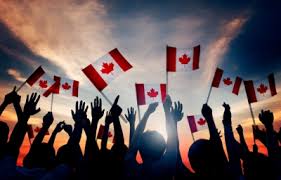Language is considered to be a cornerstone of culture. If one wants to understand a culture, it is important to know the language. Many people enjoy learning a new language, partly because it opens them to new cultures. There is an explosion of people learning new languages using Apps like Duolingo or Babel. It seems everyone understands the importance of language to culture–except the Canadian Government.
Our PM has “trademarked” the line “diversity is our strength,” but his idea of diversity seems to be related to skin colour, costumes (for which he is fond), and food. It definitely does not include more fundamental elements found in a diversity of languages or thought.
Canada is targeting 400,000 immigrants per year. Some people are advocating for even more, to offset our declining fertility rate of less that 1.5 children per woman. The overwhelming majority of these immigrants will not speak English or French as their first language. Instead, they bring a variety of different languages to our country: Tagalog, Hindi, Chinese, Punjabi, Farsi, German and Spanish.
As noted in a recent Stats Canada publication, the use of French at home, even in Quebec is declining, while other languages have surpassed it in all other provinces. In Manitoba, the languages most often spoken are English, Tagalog, Punjabi, German, with French in 5th spot. Given the current immigration trends, French will soon also be surpassed by Chinese, Hindi, Spanish, and Urdu.
Canadians who have visited Australia, New Zealand, the USA, or the United Kingdom may have noticed that in these countries, government services are often provided in other languages even though English is their official language. None of these countries take in as many immigrants as does Canada, yet all offer official services in languages other than English.
This begs a very important question: How can we be a cultural mosaic if there are virtually no services provided to our immigrant population in anything but English and French?
As French language becomes less important in the lives of Canadians, the Federal Government seems to be doubling down in trying to ensure that most federal civil servants can communicate in French. The government increasingly focuses on hiring civil servants able to communicate in French, staff promotions are often based on the ability to speak French, and bonuses are paid to French Language speakers. The federal government insists that as a country, Canadians must do better in speaking and communicating in French despite the fact that, over the last 30 years, fewer and fewer Canadians speak French.
Globally, only about 1 percent of the world population speak French as a first language, which is slightly less than those who speak Korean or Turkish.
The time has arrived for the Canadian government and Canadians in general, to recognize that there is nothing sacred about the declining use of French. It is also time to recognize that because of our immigration, the Canadian language policy needs to adapt. Canada does not need to abandon French. We just need to recognize that our language policy should reflect who we are. A major step in doing this is to offer government services in other languages, perhaps in the top 3 languages found in a region.
In my international travels as a government bureaucrat, I visited many embassies and was surprised that almost every Canadian Embassy and Consulate was filled with French-speaking diplomats. In most embassies, the diplomatic offices were short on Canadians who could speak the local language. This meant that Korean Canadians or Arabic Canadians were not being employed as diplomats. Instead, the embassies needed to rely on local staff to fill positions that should be reserved for Canadians due to confidentiality and security issues.
Canada needs to adopt a policy to recruit and train diplomatic personnel who can speak, read, and write in other languages (as does the USA and the UK). As well, Canada should consider delivering services in other languages. For example, if a local population has more than 4 percent of people whose first language is not English, then the Federal Government could consider providing services in that language.
These two policies would open opportunities for our immigrant populations and they would do more than provide lip service to our aspirations to be a multicultural country.
A federal political party that promises to offer services in other languages would likely gain support of our growing immigrant populations. It is time for us to think the unthinkable and provide services in other languages – truly embracing true diversity.
Randy Boldt is a senior fellow at the Frontier Centre for Public Policy



